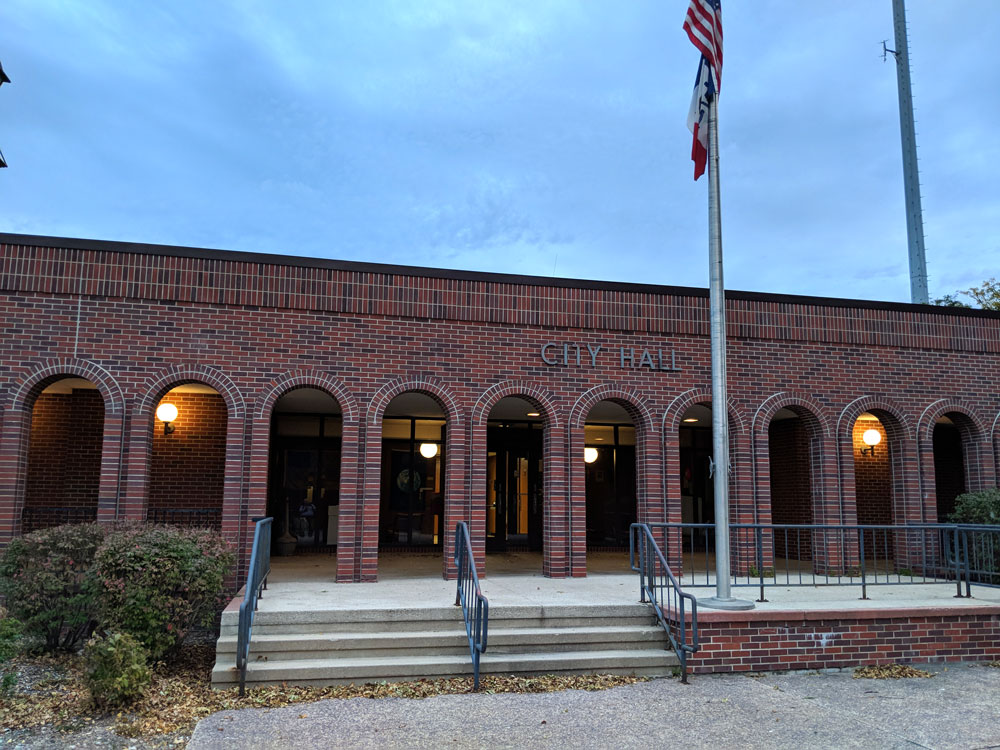Floyd County property owners looking at part of their tax bill increasing close to 25%
By Bob Steenson, bsteenson@charlescitypress.com
Floyd County general services property taxes — the amount paid by every property owner in the county — could potentially go up almost 25% in the new fiscal year that will begin July 1.
On the other hand, the tax rate for rural services — paid only by property owners in the unincorporated areas of the county — could be going down, but their actual rural services tax bill could be going up anyway if their property valuation increased.
The amount of property taxes collected for general services could potentially rise from $4.854 million in the current year to $6.045 million in the next fiscal year, an increase of 24.55%.
The actual amount of rural services property taxes collected could also be increasing, from $2.120 million to $2.162 million, or 1.99%, due to an increase in property valuation in the rural areas.
Those figures are potentially the most that county property taxes can go up, if they are approved at the maximum tax levy public hearing that will be held by the county Board of Supervisors at 9:15 a.m. Monday, March 1.
Supervisors said they would continue to work for ways to reduce spending before approving the final budget, but settled at those maximum figures to be sure to have enough funds.
The reason for the large increase is the new Floyd County Law Enforcement Center. The project for a new county jail, sheriff’s offices and other uses, plus significant updates to the county courthouse, was originally estimated to cost less than $13.5 million, so that’s what the county asked voters to approve in a general obligation bond referendum in May 2018.
The actual costs came at more than $16 million, although that is being cut some as originally planned courthouse updates are downscaled or dropped entirely, and county supervisors hope additional reductions are possible.
The law enforcement center project is expected to be finished in a couple of months, and to pay the extra construction costs the county is using about $2.2 million from its general fund reserves.
Without the significant increase in property tax collections, that would send the county’s ending fund balance in its general fund into the red.
For example, if the fiscal year 2021-22 general supplemental fund tax rate was kept at the same rate it is in the current year, the county would end up next fiscal year with a negative balance of more than $388,000, County Auditor Gloria Carr estimated for budget discussions with the Board of Supervisors last Friday.
Typically, counties in Iowa try to carry over a general fund balance in the new fiscal year of at least 25%. More than that and the county can be accused of taxing people more than it needs to. Less than that and it may not be able to pay its bills before more revenue comes in with new property tax collections in the fall.
At the maximum tax rate being proposed for the new Floyd County fiscal year, there would be about a 21% carryover fund, or an estimated $503,532 in the general supplemental fund — less than optimum, but something the county could live with, Carr said.
The supervisors have spent hours trying to come up with as many spending reductions as they can find that won’t cut county services unacceptably.
At the meeting Friday they discussed not allowing departments to give employee pay increases above 2.5% — and even briefly touched on a pay freeze; not allowing departments to hire additional staff that had been requested; requiring departments to look more closely at and justify how much they are carrying over from year to year; and forgoing the annual transfers of more than $125,000 to the county secondary roads department and $50,000 to the Emergency Management Fund.
County Engineer Dusty Rolando said his roads budget could absorb that cut for a year or two, but not indefinitely without reducing road maintenance.
No final decisions were made, other than the rates to be published for the “maximum tax” hearing set for March 1 that establish the highest amount of property tax the county could collect.
Beginning last year, the state has required any government body that is proposing increasing the amount of property taxes collected by 2% or more to hold a separate hearing setting the maximum increase.
As part of the public notice for the maximum tax hearing (printed on page 5 in today’s Press) a list of reasons for the potential tax increases is included.
First on the list is “General Fund expenses increased $2.2 million due to bids for the (law enforcement center) project coming in higher than expected.”
A separate public hearing on the final budget will be held a few weeks later in March, after which the new county budget will be officially adopted.
To increase taxes by 2% or more also requires a vote by a two-thirds majority of the board of supervisors. In effect, however, the difference between a simple majority and a super-majority is meaningless with a three-person board. It takes at least two votes to pass anything, and it’s rare that board decisions are not made 3-0.
People who own property in the unincorporated areas of the county — notably farms — pay the general services part of the county tax, plus an additional rural services tax for the services the county provides to them that it doesn’t provide to city residents. City residents pay the county general services property tax, and also usually have a city property tax levy as well.









Social Share